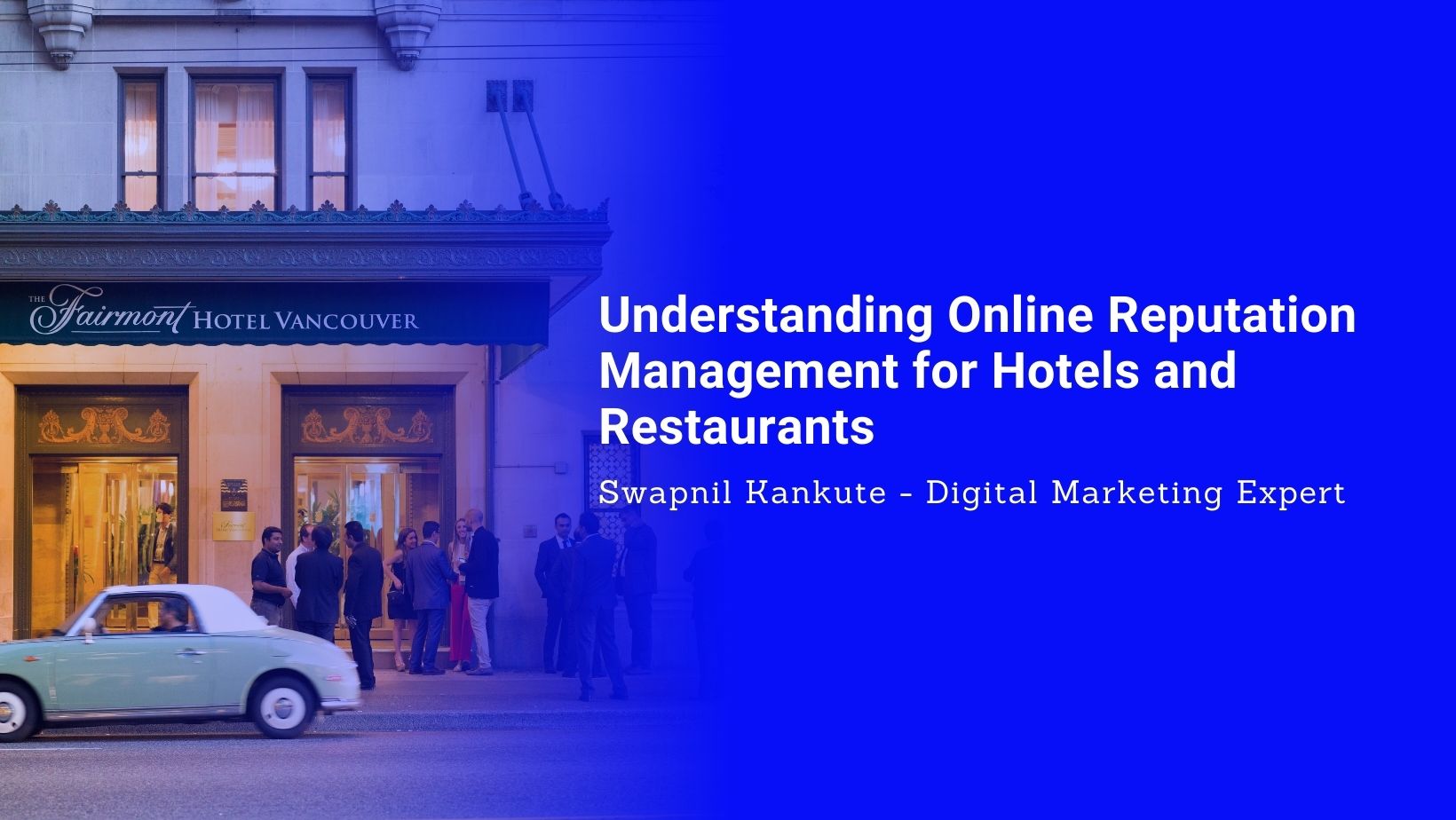In today’s digital age, the reputation of hotels and restaurants can be significantly impacted by online reviews, social media posts, and other user-generated content. Effective Online Reputation Management (ORM) is essential for maintaining a positive image and ensuring the success of hospitality businesses. This blog will explore the importance of ORM, strategies for managing online reputation, and how hotels and restaurants can leverage positive feedback to boost their business.
Table of Contents
ToggleWhat is Online Reputation Management?
Online Reputation Management (ORM) refers to the practice of monitoring, influencing, and managing an individual or organization’s online reputation. For hotels and restaurants, this means actively managing reviews, social media interactions, and other online content that shapes public perception.
Why ORM Matters for Hotels and Restaurants
- Consumer Trust: Potential guests heavily rely on online reviews and ratings when choosing accommodations or dining options. A positive reputation fosters trust, while a negative one can deter customers.
- Increased Bookings and Revenue: A strong online reputation can lead to increased bookings and higher revenue. Customers are more likely to choose hotels or restaurants with favorable reviews and ratings.
- Crisis Management: Effective ORM allows businesses to address negative feedback promptly, minimizing potential damage to their reputation.
- Brand Loyalty: Maintaining a positive online reputation can enhance customer loyalty and encourage repeat business.
Key Components of ORM for Hotels and Restaurants
1.Monitoring Online Mentions
The first step in effective ORM is to monitor what is being said about your hotel or restaurant online. This includes tracking reviews on platforms like TripAdvisor, Google, Yelp, and social media mentions. Tools like Google Alerts and social listening platforms can help businesses stay informed about their online presence.
2.Responding to Reviews
Timely responses to both positive and negative reviews are crucial. Acknowledge positive feedback with gratitude and address negative comments with empathy and a willingness to resolve issues. This shows potential guests that you value customer feedback and are committed to improving their experience.
3.Encouraging Positive Reviews
Proactively encouraging satisfied customers to leave positive reviews can enhance your online reputation. Consider following up with guests via email after their stay or dining experience, asking them to share their thoughts online. Make it easy for them by providing links to your review profiles.
4.Managing Negative Feedback
Negative feedback is inevitable, but how you handle it can make a significant difference. Respond professionally and promptly, addressing the customer’s concerns and offering solutions. If the issue is resolved satisfactorily, encourage the customer to update their review.
5.Social Media Engagement
Engaging with customers on social media is an effective way to manage your online reputation. Respond to comments, share user-generated content, and engage with followers to build a positive community around your brand. Social media can also serve as a platform for showcasing positive experiences and addressing any concerns.
6.Building a Strong Online Presence
A robust online presence helps shape your reputation positively. Maintain an informative and engaging website, utilize search engine optimization (SEO) strategies, and actively participate in social media. High-quality content, such as blog posts and videos, can help portray your business as an industry leader.
7.Crisis Communication Plan
Having a crisis communication plan in place is essential for managing potential reputation crises. Identify potential risks and outline steps to address them. Being prepared enables you to respond quickly and effectively, minimizing the impact on your reputation.
8.Engaging in Community Initiatives
Participating in community events and supporting local causes can positively impact your reputation. Showcase these initiatives on your website and social media channels, demonstrating your commitment to the community and enhancing your brand image.
Conclusion
Online Reputation Management is a vital aspect of success for hotels and restaurants in the digital age. By monitoring online mentions, responding to feedback, and engaging with customers, businesses can build and maintain a positive reputation.
As a certified digital marketing expert, I recommend that hospitality businesses prioritize ORM as a core component of their digital marketing strategy. By investing in reputation management, hotels and restaurants can enhance customer trust, drive bookings, and ultimately achieve long-term success.



